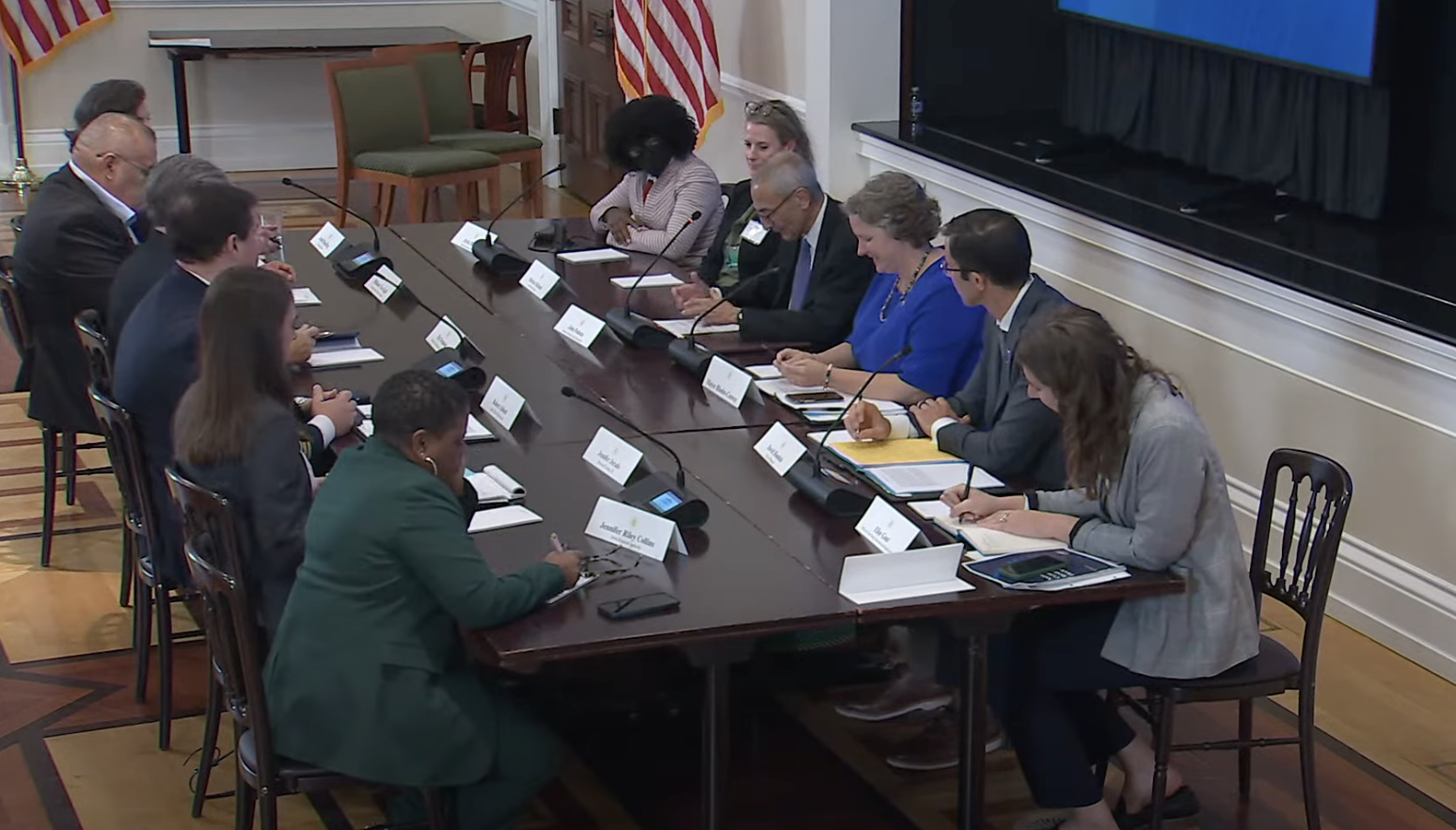
Virgin Islands Good Food Executive Director Sommer Sibilly-Brown attended the “Inaugural White House Summit on Building Climate Resilient Communities” Sept. 28 and joined representatives from 25 states, tribal lands and territories to share insights, knowledge, and strategies for mitigating the impacts of climate change on local community’s infrastructure, and ecosystems, the Virgin Islands Good Food Coalition announced in a recent press release.
The summit opened with both sobering and inspirational remarks from Ali Zaidi, assistant to President Biden and National Climate Advisor, who stated, “We have seen the skies turn orange. We have breathed in the smoke into our lungs from fires burning hundreds of miles away. We’ve seen our friends and family members’ property and memories washed away by floods that are unprecedented. We’ve seen our coastlines become greater vectors of risk.”
Zaidi went on to say, “Many people are horrified by the catastrophe, the emergency and the fury of a changing climate, but what this room represents is the proposition that this chapter of our history can be written as a moment of rebirth, repair and revitalization, of coming together and hold the sense of hope and possibility.”
The Inaugural White House Summit on Building Climate Resilient Communities was broken into two streams. The first section was a live-streamed forum where speakers addressed the following topics:
- How Federal Programs are Supporting Local Initiatives
- Building Climate Resilience from the Ground Up
- Expanding Our View of Climate Resilience
The second portion of the event featured six closed-session roundtables that covered a broad cross-section of topics ranging from:
- Planning and Response
- Catalyzing Investment and Innovation to Growing Thriving Communities
- Reducing Climate Risk Through Nature
Sibilly-Brown played an active role in the roundtable sessions and represented V.I. Good Food’s work in building food security and a more resilient territorial food system. She shared lessons learned in the wakes of hurricanes Irma and Maria, from the COVID-19 pandemic, and from the recent droughts impacting the Virgin Islands.
“We learned that 2023 is the hottest year ever on record and that just from January to August, the U.S. has had more separate billion-dollar weather and climate disasters this year than any full year on record. Here in the V.I., we are particularly prone and increasingly vulnerable to strengthening hurricanes, more intense droughts, rising sea levels, loss of coastlines and landmass, and more. However, the summit reaffirmed that we actually have the knowledge and technology to put real solutions in place,” Sibilly-Brown said.
“I am thankful to the Biden-Harris Administration for curating this summit with a diverse cross-section of our nation’s leadership from varied disciplines and with intentional representation from all parts of our nation. I really think there is a paradigm shift happening and it was encouraging to hear the summit participants and leaders acknowledging that tackling climate resilience is going to take a bottom-up approach. It’s not an ‘all-government’ approach. It’s an ‘all-community’ approach. We have an opportunity to prepare ourselves, but it is going to be based on each community’s abilities to respond to rapidly increasing rates of change in our climate and environments and to metabolize new strategies and new ways of being to survive and thrive,” Sibilly-Brown stated.
As for farmers, Sibilly-Brown said, “We are doubling down on the fact that we need to center farmers and their voices in this conversation. Farmers and front-line food producers often are the first to experience the impact of the drought, heat waves, and flooding – and our community does not yet have the adequate support mechanisms to safeguard them as they safeguard us through food production. I believe our ability to mitigate current and future climate effects is going to be directly related to getting more federal dollars to the ground level and into the hands of those on the frontlines – our farmers, local experts and practitioners, so they can implement, test and experiment with the new climate strategies to be able to further tailor the solutions to our specific environmental needs and circumstances. We need faster response times, more effective collaboration, and to shift the use of local and federal resources to support innovation within the civic and private sectors. These sectors have the built-in agility to deploy new strategies and integrate learning much faster than larger institutions.”
Sibilly-Brown shared that she believes solutions are within reach. “We have to acknowledge that mono-crop and industrial agriculture have been major contributors to deforestation, groundwater pollution and soil degradation. But agriculture can also be a climate solution. Through the use of ancestral, agro-ecological, precision and climate-smart practices, we can grow food and work with nature to help capture carbon, regenerate soil, increase watershed health, and capture groundwater,” she said.
The summit confirmed that implementing environmental conservation practices and building food security is crucial and essential to building climate response, adaptation and resilience. Sibilly-Brown said she is looking forward to continuing V.I. Good Food’s work to strengthen farmers’ capacity and to promote conservation practices, the press release stated.
“We have programs that drive climate resources and strategies to V.I. farmers like providing farmers technical assistance to participate in USDA programs that promote natural resource and land conservation and fundraising efforts for drought relief assistance for farmers,” she said. “The more we direct climate resources to farmers and include farmers in designing and implementing climate solutions, the more climate resilient our communities will be,” said Sibilly-Brown.
V.I. Good Food is a nonprofit organization dedicated to advancing food security, food sovereignty, food justice, and sustainable and regenerative practices in the U.S. Virgin Islands. Their programs focus on marketplace creation and access, education and outreach, technical assistance and services, research, data collection and assessment, advocacy, and market capital and emergency support. V.I. Good Food was established in 2012 and is a project of the St. Croix Foundation for Community Development.





